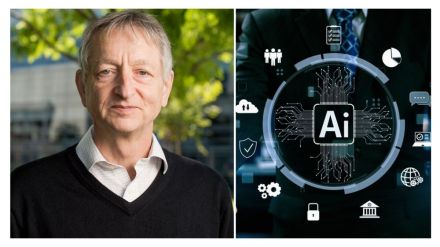Artificial intelligence pioneer Geoffrey Hinton has warned that AI is on track to replace most routine intellectual jobs—and that society may not be ready for the fallout. Speaking on the Diary of a CEO podcast aired June 16, Hinton said AI will eventually become better than humans at nearly everything, with mass job losses posing what he called the “biggest threat to people’s happiness.”
Hinton, often called the “Godfather of AI” for his influential work on neural networks, recently left Google to speak more openly about the risks of the technology he helped create. According to Business Insider, he believes many jobs, especially those involving repetitive or low-skill office work, will disappear soon. “For mundane intellectual labor, AI is just going to replace everybody,” Hinton said. He identified jobs in call centers and legal support, such as paralegals, as being at particularly high risk. “I’d be terrified if I was working in a call center,” he added.
By contrast, jobs that involve physical skills are likely to be more resilient. “It will take a long time for AI to be good at physical tasks,” Hinton said. “So being a plumber is a smart choice.” As white-collar roles face mounting pressure, Gen Z workers are increasingly turning to blue-collar trades like plumbing in search of job security. Even in fields where AI won’t completely replace humans, it is expected to reduce headcount dramatically. Hinton noted that AI assistants will allow one worker to do the job of ten, driving down demand for entry-level roles and accelerating disruption. “You would have to be very skilled to have an AI-proof job,” he said.
Healthcare is one of the few sectors Hinton believes may be able to absorb AI-related change due to high and consistent demand. “A few areas, like healthcare, will be able to absorb the change,” he said. “But most jobs are not like healthcare.” Hinton supports the idea of universal basic income to offset job losses, but warned it may not be enough. “Even with UBI, people might still feel unhappy because they lose their sense of purpose without work,” he said.
